Primate Tales is a blog series that explores the lives of individual apes and monkeys at research sites supported by The Leakey Foundation. This installment of Primate Tales is the story of Darwin, a female capuchin monkey that lives in Costa Rica. She is one of the monkeys studied by Leakey Foundation grantee Susan Perry as part of the Lomas Barbudal Monkey Project. These capuchins are one of the most intensively studied wild monkey populations in the world.
By Susan Perry, Lomas Barbudal Monkey Project
Early Life
Darwin was born into Rambo’s group on Sept 8, 2001, a thriving group of 34 white-faced capuchin monkeys in Lomas Barbudal Biological Reserve, during a time of great prosperity for the group. Darwin was the second offspring of Dixie, daughter of alpha male Pablo and of the venerable alpha female Chupacabra (see photo below), who had been the eldest and highest ranking of 3 “browy” matriarchs, recently giving up her leadership role to her daughter Mezcla. Chupacabra, who we estimated to be around 34 years old at the time of Darwin’s birth, had dark bushy brows that reminded observers of a vampire and bowed legs that made her walk funny. Her voice was so loud and raspy that even her food calls sounded terrifying to human observers.
Darwin’s grandfather Pablo had been in power for ten years, and he remained alpha male until 2008. This meant that Darwin’s early years of life would be safe from incursions of infanticidal males, and she would grow up in a rich social environment, surrounded by many siblings and cousins who would be her playmates. Pablo was an unusually tolerant and gentle alpha male, who inspired great loyalty from his sons and allies.
When there are long-term alpha males, capuchin groups tend to be closely related. At the time of Darwin’s birth, only 4 of her 33 groupmates (two immigrant males and 2 elderly females) were potentially unrelated to her, and it is likely that if we had more generational depth in our pedigrees, we would find that these immigrant males were somehow related and that the old females were descendants of a single matriline. Darwin’s family included both parents, both maternal grandparents, a full brother, 2 maternal aunts, 18 paternal half-siblings (many of whom were also an uncle or some sort of cousin), and 4 additional cousins. The number of cousins and siblings would continue to grow dramatically in the first decade of Darwin’s life.
Darwin’s father was an immigrant male named Aramis [photo], who immigrated with his allies Porthos and Athos in 1997. Normally the alpha male sires almost all of the offspring, but he does not breed with his daughters, which explains why Pablo was not Darwin’s father in addition to being her grandfather. Although Aramis was her biological father, Darwin was far closer to her grandfather Pablo, spending ~60 times as much time near him as she did to Aramis. Although her mother Dixie was her primary caretaker, about 25% of her rides and 11% of her milk came from other members of her family, including aunt Mezcla, her grandmother Chupacabra, and various female cousins.
Juvenile Phase
Darwin’s early years were very happy and relatively uneventful. She loved the big rowdy play bouts, in which she tumbled around on the ground, wrestling and play biting with her siblings and cousins. Her favorite play partners were her sisters Mombassa and Mooch, but she played with almost all of the youngsters who were near her age. The only major change during her juvenile period came in 2004, when aunt Delilah “eloped” with Darwin’s father Aramis and Aramis’ co-migrant/ally Porthos, taking all of her descendants with her to form a new group (Muskateers group). Some of her brothers and male cousins emigrated during the next few years, including her brothers Badoodie, Dashiki, Dakota, Rocky, and Wembley. However, as the group’s females were steadily giving birth to new offspring every second year, and offspring survivorship was high, there were still plenty of siblings and cousins to play with.
Motherhood
In fact, Darwin was having so much fun playing that when she finally got pregnant (by her paternal half-brother Gizmo) and had a baby of her own at age 6.7 years of age (a typical age for being a first-time mother), she didn’t seem ready for adulthood. At first, she seemed to be managing nicely with little Ruben Dario, and we didn’t see any evidence of gross incompetence. But on June 6, 2008, when Ruben Dario was about 3 weeks old, she took him to play with Ginseng, her cousin Gerber’s baby, who was born just two days after Ruben Dario. We aren’t sure who made the first move to initiate this play date, but as far as we know, it was consensual on both sides.
Gerber is perhaps the sweetest, most patient mother in the population, and she cheerfully tolerated having both babies clambering around on her back. Darwin stayed in the vicinity uneasily watching Gerber care for the two infants, but she didn’t make any attempt to retrieve Ruben Dario. Darwin and Gerber formed a coalition to chase away Took, a subordinate adult male, while Gerber was carrying both babies, but aside from that, they didn’t seem to interact further. There was no evidence of conflict between Gerber and Darwin. But the following day, Darwin returned to her carefree, playful juvenile life, leaving Gerber to care for both babies permanently! Gerber didn’t seem to mind: she nursed both infants, caring for Ruben Dario as if he was her own. Ginseng and Ruben Dario got along famously and seemed to enjoy always having a playmate within arm’s reach.
It is exhausting for a single female to care for two infants: not only did she have to carry them both and nurse them both, but they played non-stop, using her as a jungle gym, which interfered with her ability to sleep and forage effectively. Perhaps as a consequence of this maternal depletion, Gerber’s baby Ginseng died in late November (we’re not sure how, since we were not studying Rambo’s group that day). Gerber carried on, taking care of Ruben Dario for many months after the death of her own son. Darwin was only seen caring for Ruben Dario on three occasions in 2009 (a normal rate of care for an alloparent, but not a mother!), whereas Gerber continued to care for him as a mother would. Ruben Dario vanished in July 2009, and is presumed to have died.
We were relieved that motherhood went more smoothly the second time around when her baby daughter Evolución was born. Evolución was the daughter of Moth, a natal male who was only very distantly related to her, who had defeated Pablo for the alpha male position (see his life story in an earlier installment of “Primate Tales”). Darwin made no discernible attempt to shirk her maternal duty this time. She was a devoted mother, and Evolución survives to this day, as Darwin’s closest companion. Three years after Evolucion’s birth, Darwin gave birth to a son, Mr. Darcy.
Group Fission
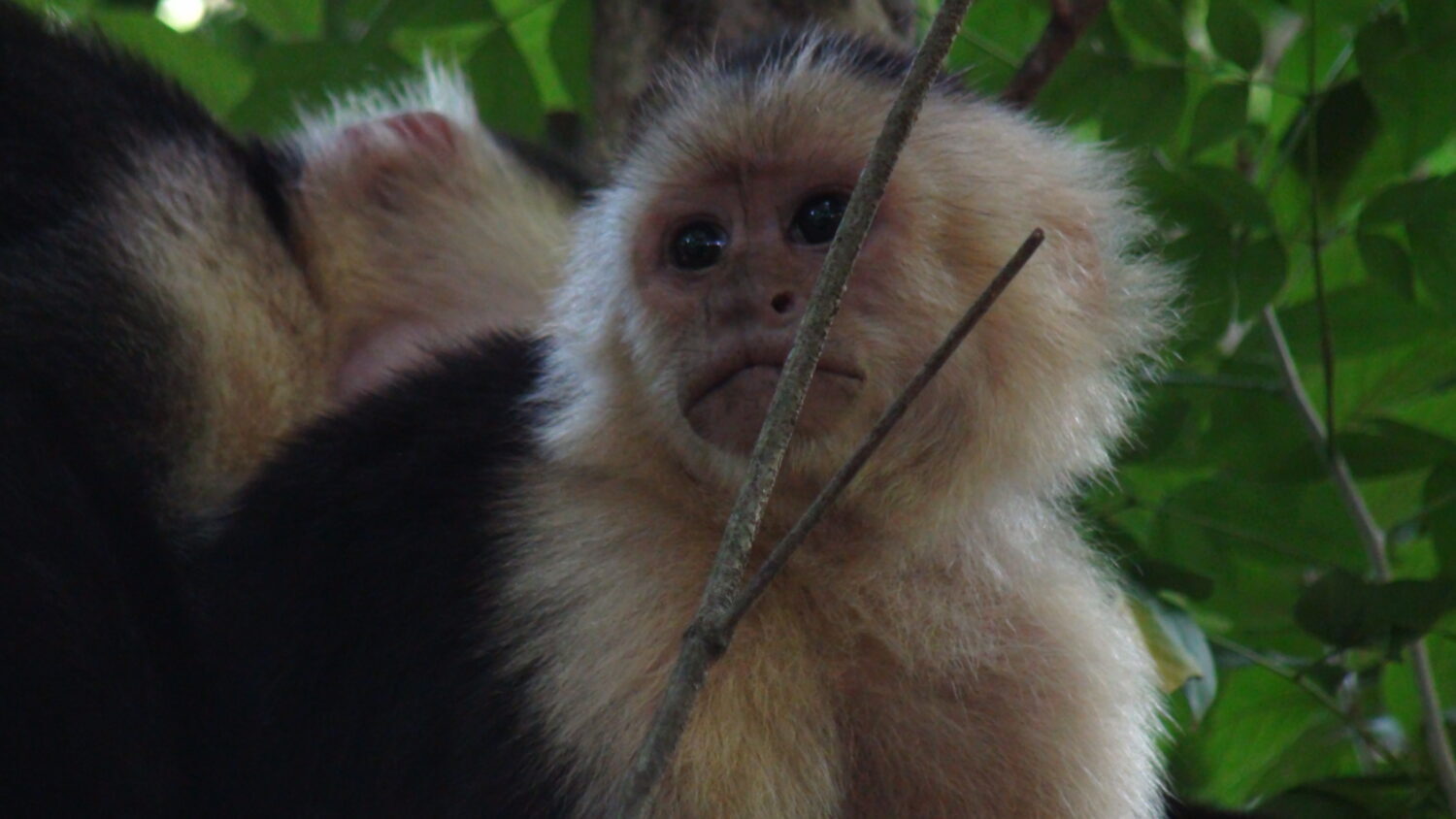
Darwin shortly before the group fission in 2012. Photo: Lomas Barbudal Monkey Project photo archive.
In September 2012, it seems that Dixie’s matriline got tired of being the lowest ranking members of an ever-growing group, and they started to explore the possibility of fissioning from Rambo’s group. By December, they had completed the process. The monkeys who chose to leave with Dixie and Darwin were T-rex (Darwin’s younger sister), Darwin’s two offspring, Riot (the daughter of the group’s lowest-ranking “browy” female – an eccentric and ancient female who had died a couple of years earlier), Riot’s daughter Urushiol, and Cody, a young female whose mother had died recently, leaving her without close kin in Rambo’s group. The males who accompanied them were Took and Bentley, a pair of eccentric and aging brothers who had co-migrated together multiple times.
Took, their new alpha male, was notable for having just one canine tooth remaining. He had long been a favorite of researchers, because of his amazing ability to keep his cool during conflicts despite his lack of weaponry. He knew exactly when it was safe to threaten, when it was safe to turn his back on monkeys who were trying to pick fights with him, and when it was time to run for his life. His mild-mannered brother Bentley looked exactly like him, and they had an unusually strong bond, characterized by sweet bonding rituals such as foot massages, and a tendency to suck on one another’s body parts mutually. Astonishingly, Took managed to keep his alpha male position in this new group even after two new young, healthy males – Gamgee and Quimley – had immigrated. By August 2013, Gamgee realized that he could defeat Took, and Took and Bentley returned to Rambo’s group, leaving Gamgee as the alpha male. The females seemed content with the new males, however, and started producing more offspring.
Drought
2014-2016 were hard years for the monkeys, as an El Niño drought caused a famine of unprecedented severity. Darwin lost her mother Dixie and her younger brother Peregrin to the drought. Furthermore, all five infants born during 2014-15 died, apparently due to starvation and maternal neglect, including Darwin’s infant Vegan and her grandson Wallace. Normally mothers cling tenaciously to their infants when they are ailing, carrying them when they are too weak to hold on, and responding to their cries for help. But it seemed that the drought had worn the mothers down so much that the mothers were too exhausted to care.
Problems with Males
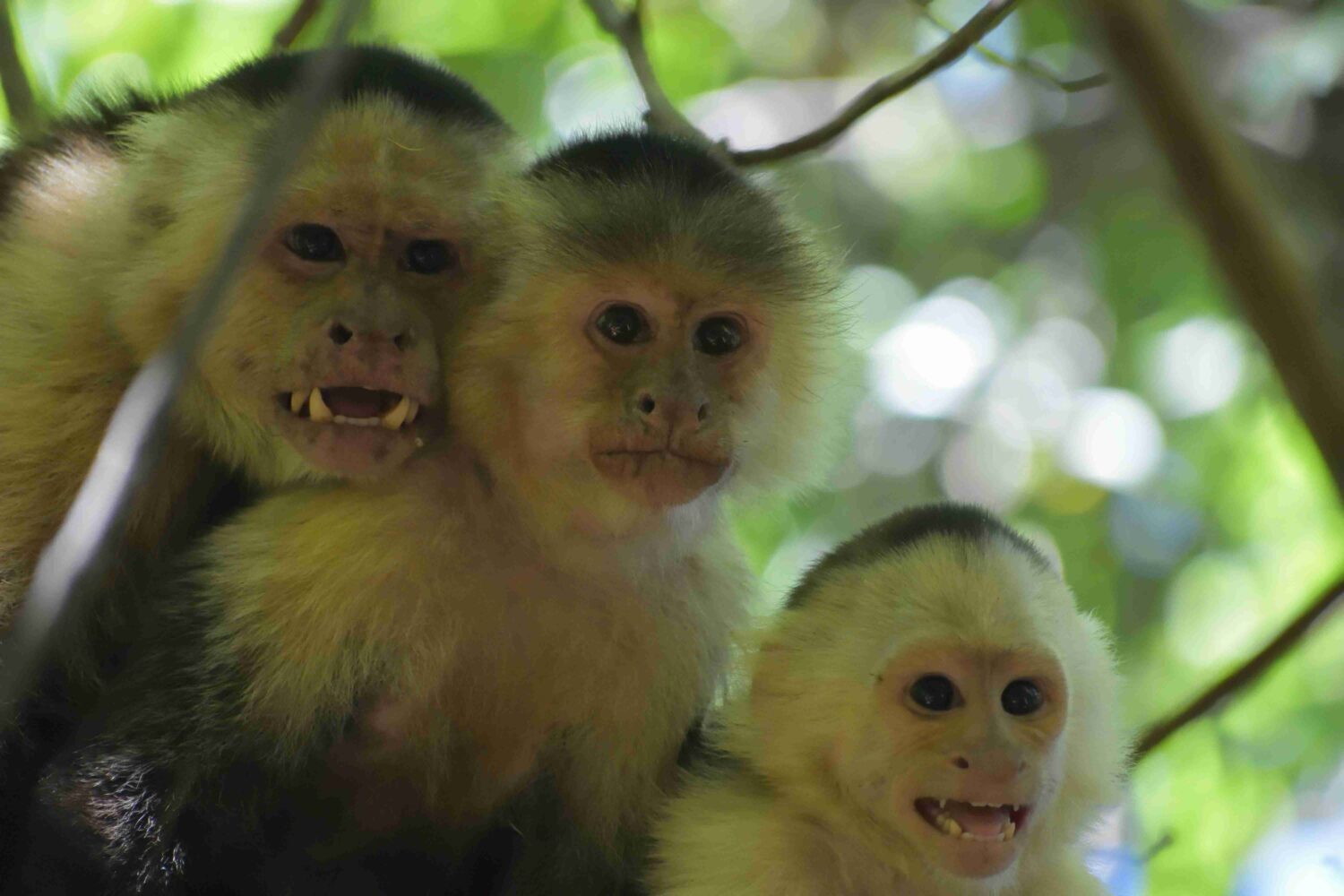
Alpha male Quimley, Darwin, and Darwin’s niece Hogwartsia unite against an enemy. Photo: Susan Perry.
The drought lifted in 2016, but in January 2017, Dixie’s group was faced with a new challenge. Their males, Gamgee and Quimley, became aware that Yucon, the alpha male of Rambo’s group, was vulnerable to attack, and they staged a takeover, severely injuring Yucon. We are mystified regarding their motives in abandoning their females, all of whom had infants young enough to be vulnerable to infanticide, in order to move to Rambo’s group. Perhaps it was because Rambo’s group had six fertile females rather than four. With her mother dead and no adult males in the group, Darwin was now the leader of Dixie’s group. We braced ourselves for grief, knowing that the most probable outcome was an invasion of new males who would kill all of the infants. We had seen many cases of females trying to avoid trouble with violent males by fleeing, but they had almost always been discovered in the end, with disastrous results.
But capuchins are full of surprises! Darwin and her kin decided to employ the tactic of hiding from males. They became extraordinarily sneaky and quiet. Occasionally a male from a neighboring group or a migrant did discover them, and these moments were hair-raising, with much drama. But for months on end, these females succeeded against all odds in defending their babies from the new males, and in escaping from all males who attempted to follow them. Five different males made serious attempts to join the group, and all were rebuffed. We began to wonder whether Darwin would have a political career like Queen Elizabeth I, in which she succeeded in evading a mate/alpha male for the rest of her life. On those days when there were no males in the group, the females seemed to live in a perfect society: there was essentially no conflict, and females contentedly groomed one another and jointly cared for their offspring. The only discontent was Darwin’s little son, Mr. Darcy, who seemed bored to be the only weaned male in the group. He frequently made excursions in search of his idols Gamgee and Quimley, and spent prolonged periods in Rambo’s group. We started to make jokes about Darwin’s feminist revolution. But finally, in October 2017, Quimley returned to Dixie’s group, leaving his ally Gamgee in charge of Rambo’s group. Darwin and company did not resist his return, and life went back to normal.
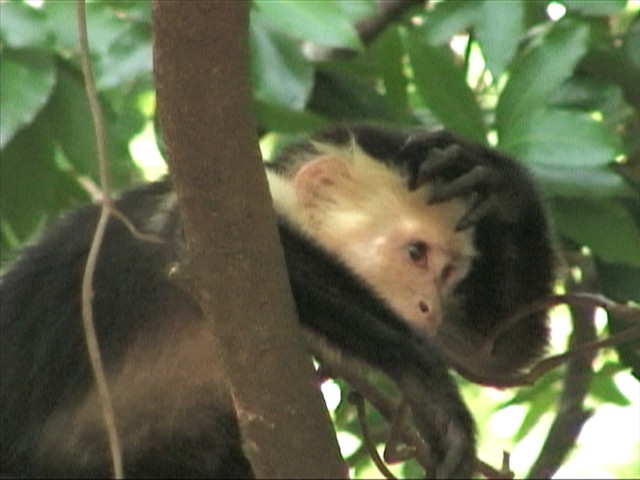
Darwin exhibiting one of her postural quirks that has endured for years, in which she clutches her head. Another of her innovations is the grooming of porcupines. Photo: Lomas Barbudal Monkey Project.
Today (August 2019) Darwin has two additional sons, Finch and Ogden, as well as two living grandchildren produced by her daughter Evolución. A fairly subdued male, Radna, has immigrated and is refraining from causing any trouble for alpha Quimley. Darwin’s son Mr. Darcy returned home when Quimley did and is showing no sign of emigrating. Each of the four females living in Dixie’s group has an unweaned infant and a recently weaned infant. Life is good for the time being! But everything is a phase, and the researchers are waiting for the next exciting chapter in Darwin’s life.
About the author: Susan Perry is a professor of anthropology at UCLA. She is the director of the Lomas Barbudal Monkey Project where she has been researching the dynamics of social relationships, mating systems, communication, social learning and traditions, social cognition, cooperation, and life histories of capuchin monkeys since 1990. Dr. Perry is the recipient of eight Leakey Foundation research grants, including the Gordon P. Getty Grant for Interdisciplinary Research.
Comments 1


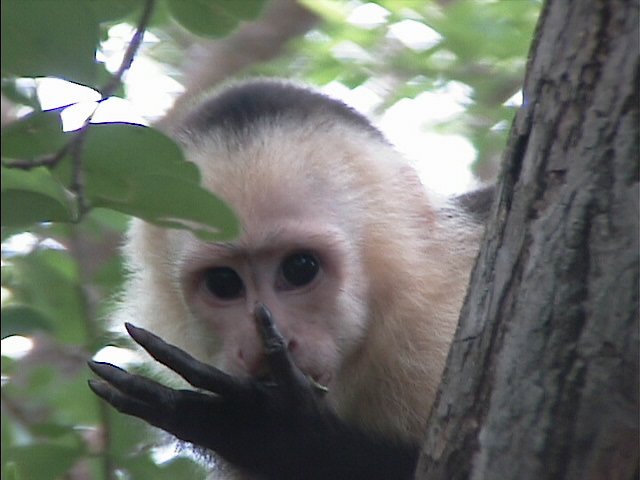
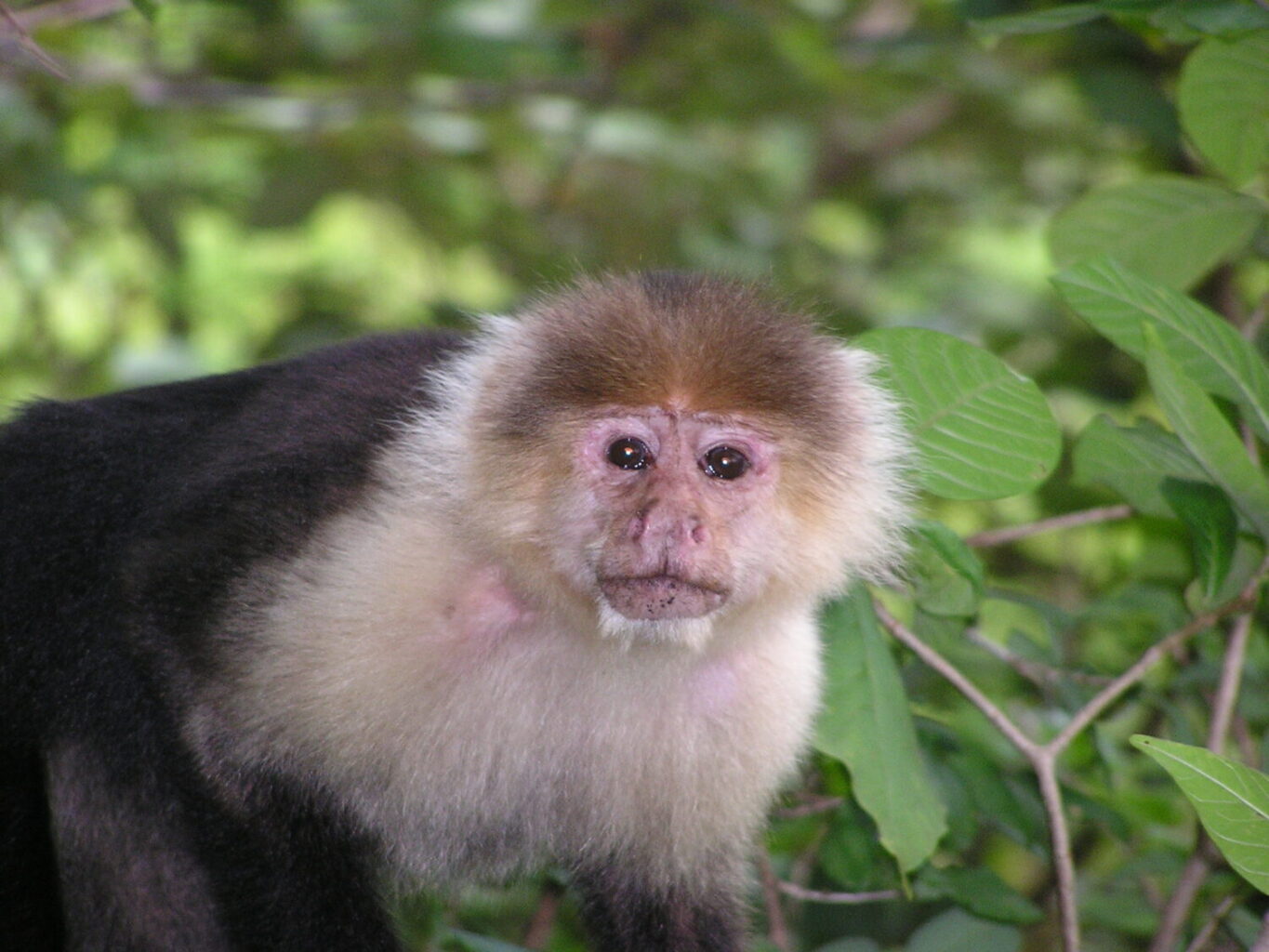
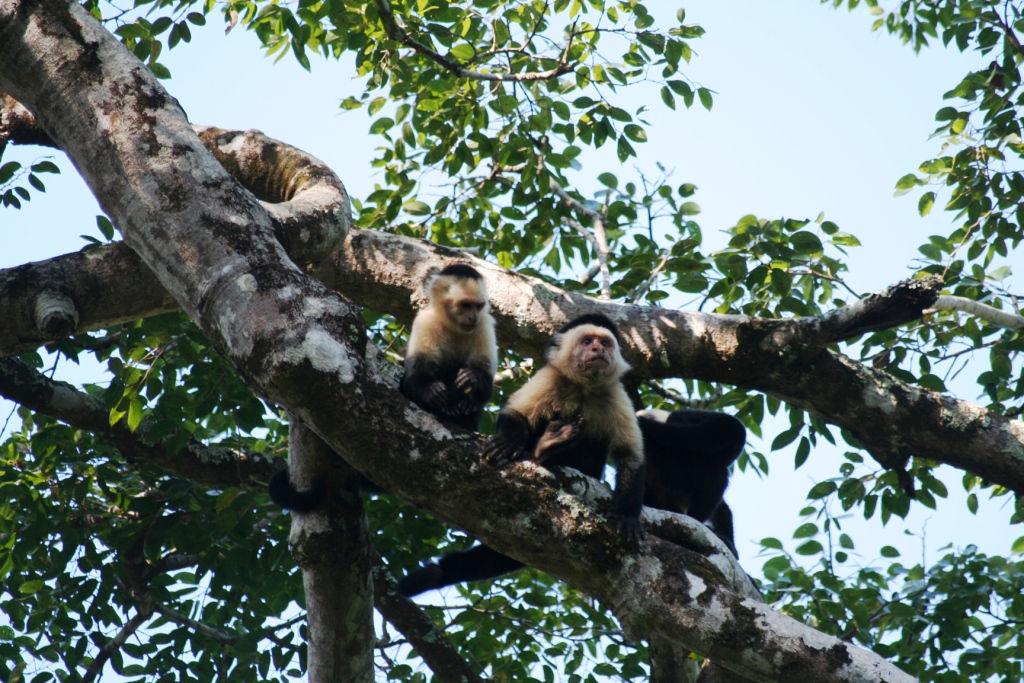
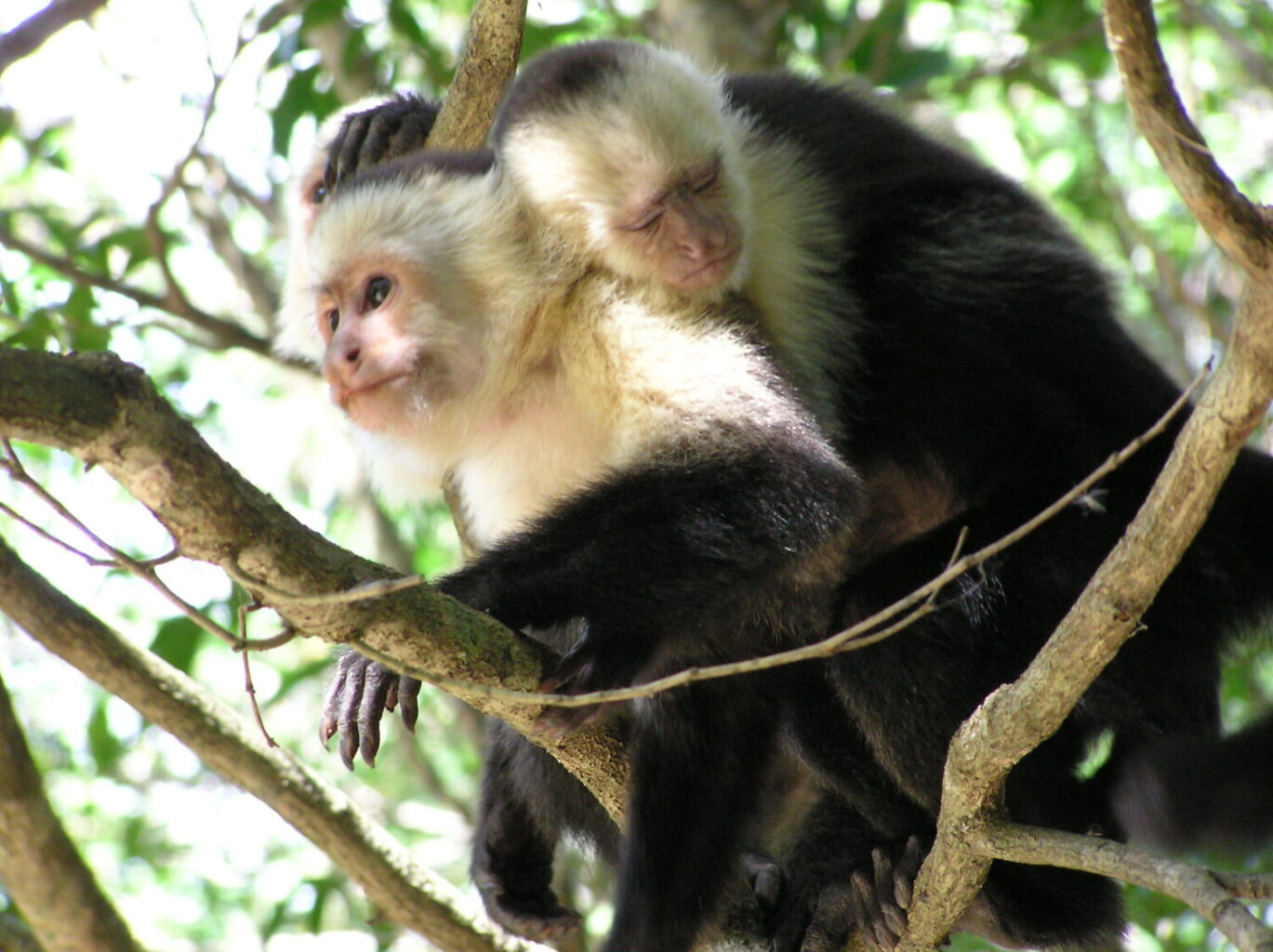
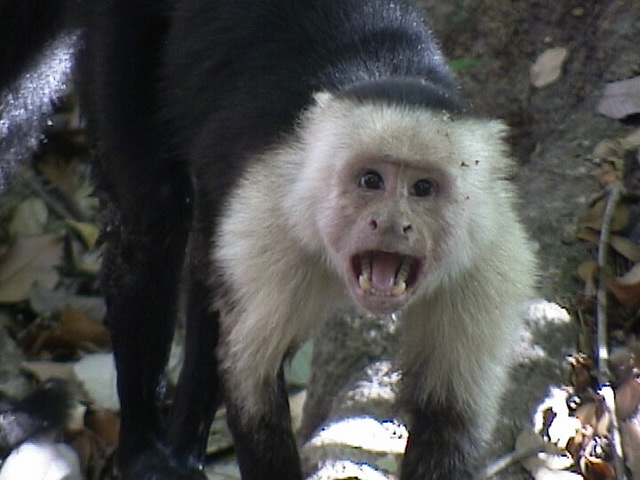
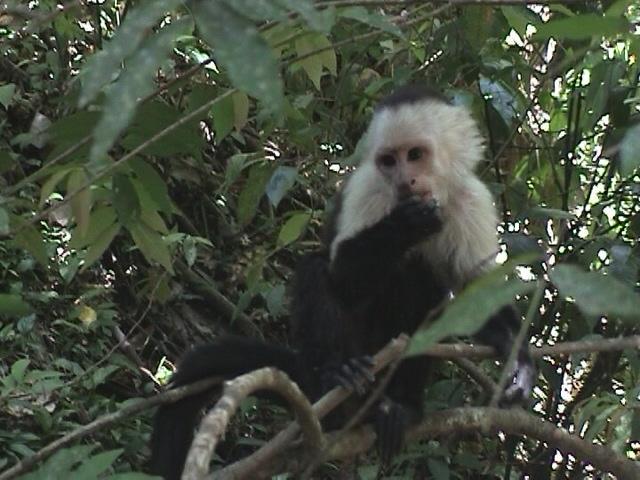

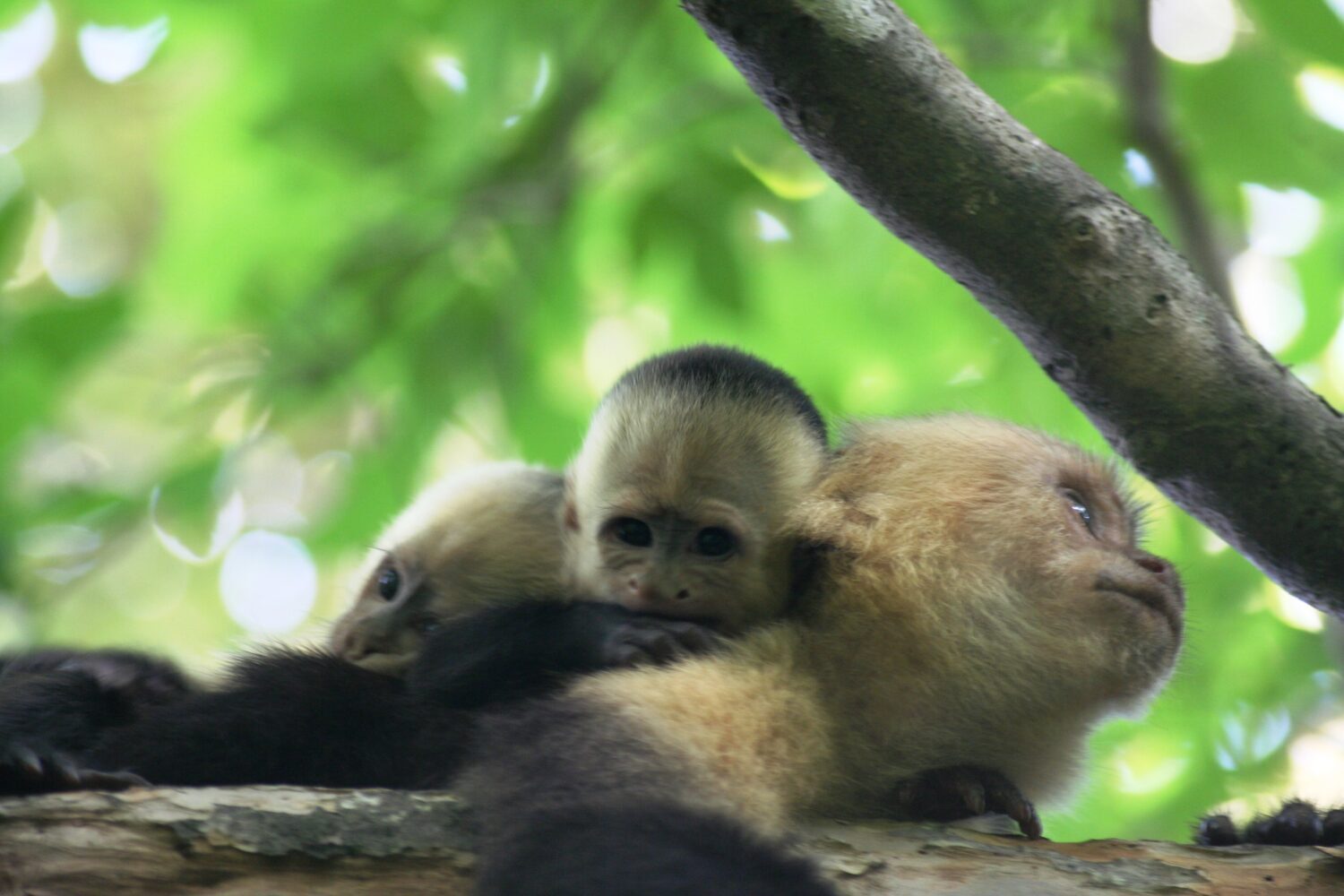
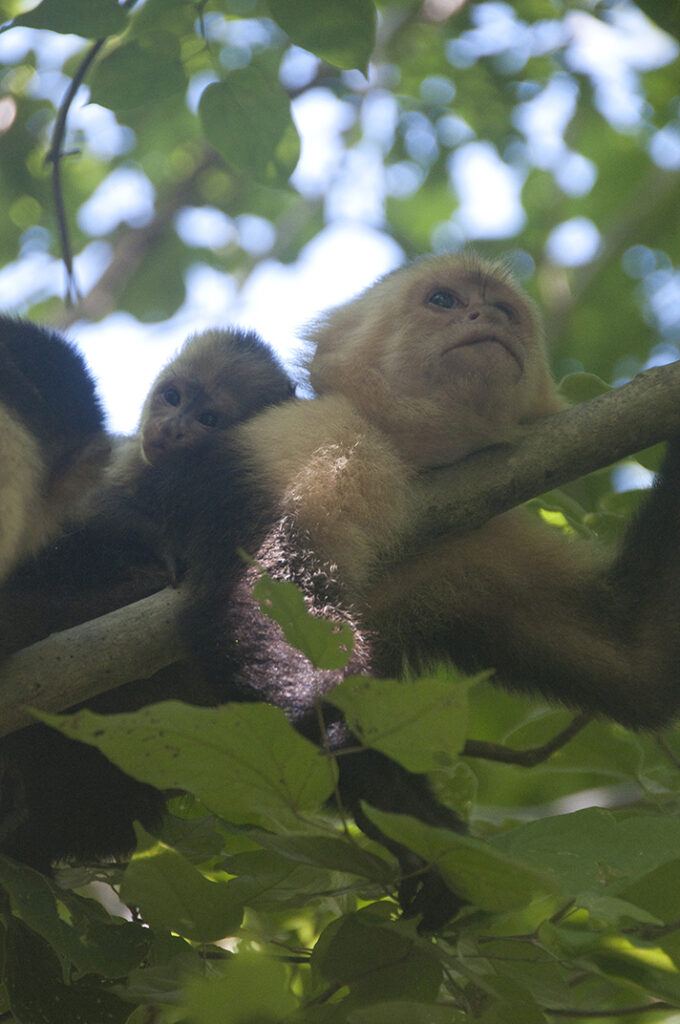
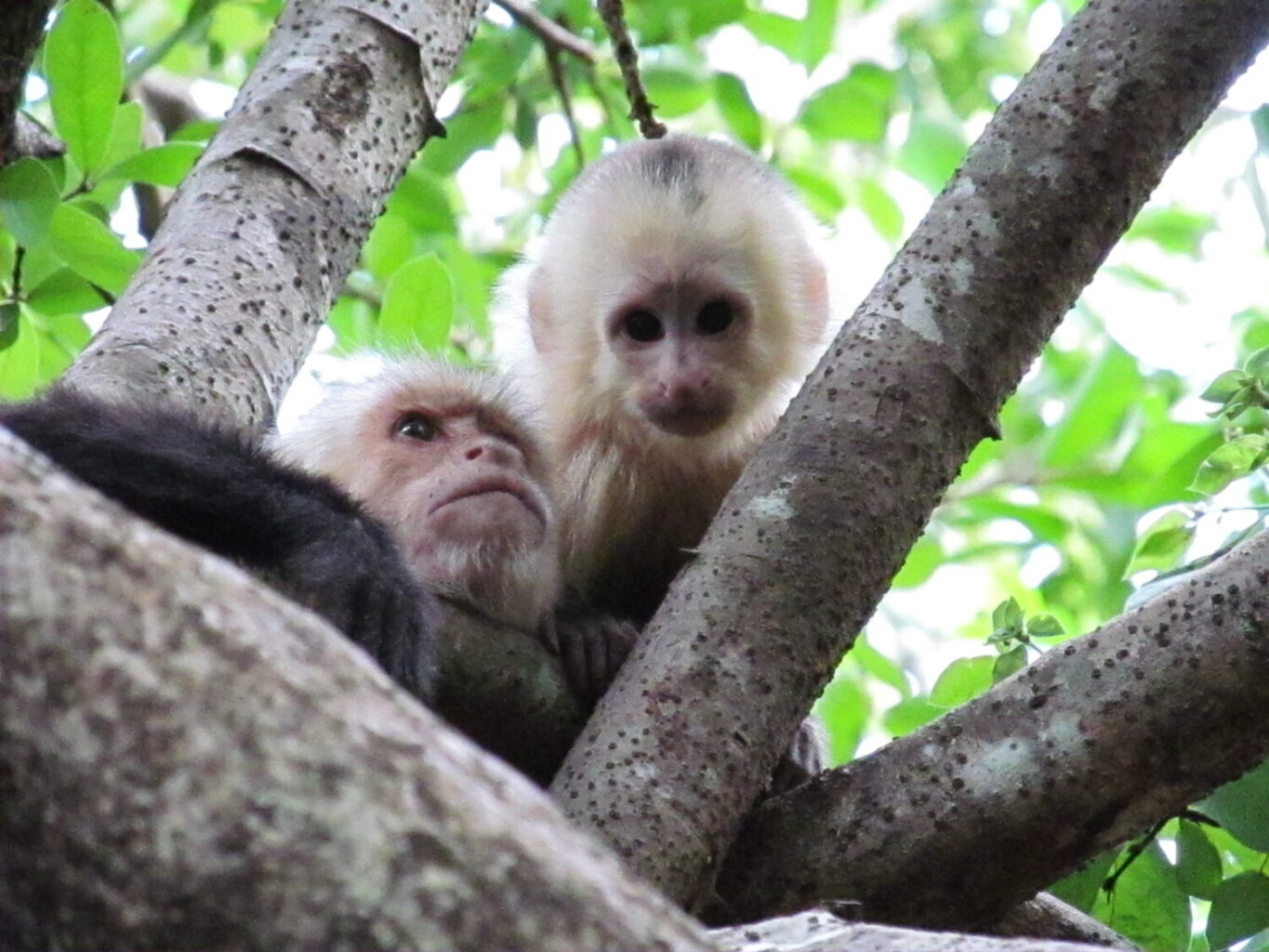
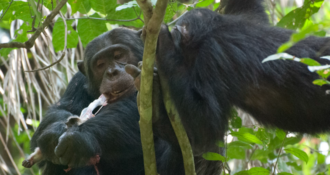
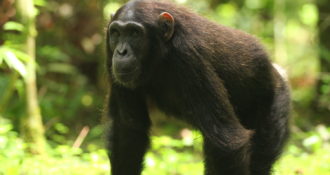

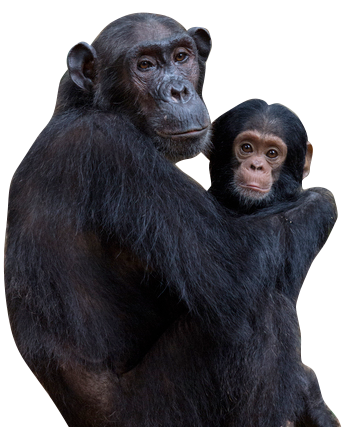
Fascinating!